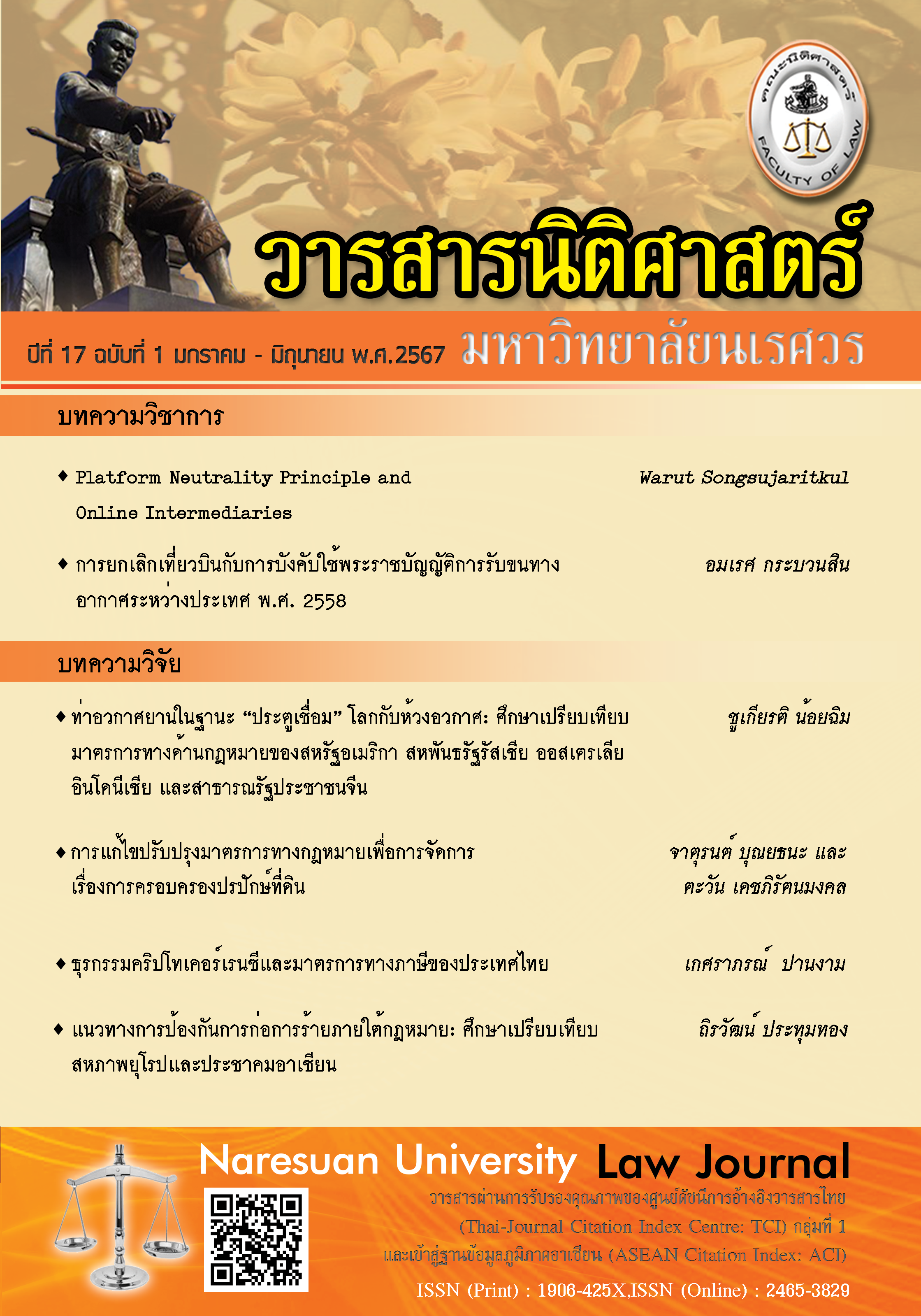An Amendment to a Legal Measure for Governing Usucaption on Land
Main Article Content
Abstract
The criteria for usucaption on land in Thailand has been in effect for long time. The problems arising from usucaption are as followings. The first problem is interpreting and using such legal measure, according to the Civil and Commercial Code Section 1382, in which the good faith principle was not prescribed. The second is the problem of overlapping prescription between 10 years prescription for usucaption on land under Section 1382 and the use of 10 years criminal prescription for usucaption on land through an offence under Section 1383 of the Civil and Commercial Code. The last one is the problem relating to opposing and revoking the land ownership after acquiring ownership through usucaption. From the research, Roman Law and laws amongst selected civil law legal regimes placed importance on bona fide, Just Title, and justa causa. Besides, some selected regal regimes including South Korea, Germany, and Sweden have developed and used real estate registration system as a fundamental for usucaption on land. Thus, amendments to laws regarding usucaption on land were suggested as follows; (1) Section 1382 was proposed to be amended by including good faith principle; (2) The period of prescription under Section 1383 was proposed to be amended to be 30 years for being consistent with changes in current economic and social conditions; and (3) Section 188 (2) of the Civil Procedure Code was suggested to be amended by allowing the court to summon a person whose name was recorded on the land register or his heirs into the case. If such persons could not appear, the court could summon administrative authorities locally working in the area where the land situated into the case to ascertain real land owner. The rationale was to solve the problem of opposing and revoking the land ownership after acquiring ownership through usucaption.
Article Details
References
Banyat Sucheewa. An Explanation on Property Law. 10th ed. Bangkok: Polsiam Printing, 2007. [In Thai]
Borkowski, Andrew, and Paul D Plessis. Textbook on Roman Law. Third Edition ed. Oxford: Oxford University Press, 2005.
Declareuil, Joseph. Rome the Law-Giver. London: Routledge, 2013.
Domingo, Rafael. Roman Law: An Introduction. New York: Routledge, 2018.
Hausmaninger, Herbert, and Gamauf, Richard. A Casebook on Roman Property Law. New York: Oxford University Press, 2010.
Kaser, Max. Roman Private Law. Translated by Rolf Dannenbring. 6th ed. London: Butterworths, 1968.
Kittipong Jitsawangsopit. “The Binding of Judgment in Civil Case: Case Study of the Civil Procedure Code Section 145.” Master’s Thesis, Faculty of Law Chulalongkorn University, 1985. [In Thai]
Montira Jamnong. “Adverse Possession.” Master’s Thesis, Faculty of Law Chulalongkorn University, 1983. [In Thai]
Narumol Tien-nam. “Legal Proceeding in Supreme Court of Thailand.” Master’s Thesis, Faculty of Law, Thammasat University, 2011. [In Thai]
Prachum Chomchai. Introduction to Roman Law. 3rd Ed. Bangkok: Textbook and Teaching Material Project Faculty of Law Thammasart University, 2006. [In Thai]
Pramool Suwannasorn. An Explanation on Thai Civil and Commercial Code: Property Laws. Bangkok: Nitibannakarn, 1994. [In Thai]
Sherman, Charles P. “Acquisitive Prescription-Its Existing World-Wide.” The Yale Law Journal 21, no.2 (1911): 146-154.
Siri Kevalinsalit. An Explanation on Land Law. Bangkok: Borpitkarnpim, 1977. [In Thai]
Steiner, Eva. French Law: A Comparative Approach. Oxford: Oxford University Press, 2010.
Yud Saeng-uthai. General Principles of Law. 12th ed. Bangkok: Praguypruk, 1995. [In Thai]


